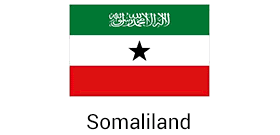 Somaliland’s Rising Profile: New Investments and Air Links Signal Regional Opportunity
Somaliland’s Rising Profile: New Investments and Air Links Signal Regional Opportunity
The story of Somaliland is marked by resilience, strategic repositioning, and a steady march toward international engagement that is now changing the face of regional travel and commerce. Once recognised by over 35 countries in 1960, including major global powers such as the US, UK, and all five permanent members of the UN Security Council, Somaliland’s status shifted dramatically just five days after independence. The region joined with Somalia, inspired by the vision of Somali unity. However, as that ideal was eroded by dictatorship, civil war, and marginalisation, Somaliland’s aspirations were seemingly overshadowed—until a pivotal moment of self-determination in 1991.
In that year, Somaliland restored its sovereignty and embarked on a very different path from its southern neighbour, prioritising peace and democracy while Somalia slipped into turmoil. Despite these achievements, the international community remained hesitant, largely deferring to Mogadishu in diplomatic affairs. This approach left Somaliland isolated, even as it demonstrated democratic credentials and occupied a geostrategic position along the Gulf of Aden, a vital trade corridor for Africa and beyond.
The realities of modern global relations mean that legal arguments alone rarely suffice in forging international partnerships. Somaliland’s leaders understood that to move forward, they had to generate tangible interest and build direct relationships with nations and institutions sharing common interests. This pragmatic shift became evident in 2015, when a transformative partnership was struck with the United Arab Emirates (UAE).
The landmark agreement with the UAE included ambitious plans to modernise Berbera Port, rehabilitate Berbera Airport, and construct the Berbera Corridor—a key logistics artery intended to link the Red Sea to the African hinterland. Not only was this the first time an Arab state had entered into a direct, significant investment agreement with Somaliland, but it also signalled a new era of economic engagement, bypassing the traditional gatekeepers in Mogadishu.
The Somali federal government responded with resistance, attempting to block the agreement politically and escalating its objections to the United Nations Security Council. Despite these efforts, the project moved ahead—anchored by the shared understanding between Somaliland and the UAE that stability, geography, and reliability outweighed political hesitation. The success of the DP World investment became a powerful signal to other international actors: Somaliland was open for business, and its leadership was ready to work with partners who respected its autonomy.
Fast-forward a decade, and the UAE has continued to develop a distinct policy toward Somaliland, recognising its unique political and economic reality. This is evident in practical measures, such as excluding Somaliland from the UAE’s visa ban list and listing it separately from Somalia in official systems. These decisions, though subtle, are powerful acknowledgements of Somaliland’s emergence as a functioning state with its own institutions, economy, and borders.
This momentum is now extending beyond the Gulf region. The United States is actively following suit. Recent legislative measures passed by the US Congress encourage American companies to invest in Somaliland and call for separate travel advisories that accurately reflect the relative stability of the region. The distinction is clear: while southern Somalia continues to grapple with insecurity, Somaliland offers a stable environment for business, infrastructure development, and tourism.
The United Kingdom has also maintained direct support for Somaliland’s development, contributing to a growing network of international partnerships. Notably, Taiwan has established a representative office in Hargeisa, marking a significant broadening of Somaliland’s diplomatic and economic connections. These milestones demonstrate that, even in the absence of formal recognition, Somaliland’s pragmatic approach to international relations is paying dividends.
For those engaged in Africa’s travel sector, these shifts carry immediate relevance and long-term opportunity. The transformation of Berbera Port and the expansion of Berbera Airport position Somaliland as a key gateway along the Red Sea corridor. Improved air and sea links are already attracting regional and international interest. As trade routes diversify and new logistics hubs emerge, stakeholders across East Africa stand to benefit from increased connectivity and streamlined access to Middle Eastern and Asian markets.
Likewise, the growing engagement from American and European institutions signals a broader opening for investment in hospitality, infrastructure, and tourism services. With its peaceful environment and democratic governance, Somaliland is becoming a preferred destination for those seeking reliable partnerships and new business frontiers. The country’s progress not only strengthens regional value chains, but also sets a precedent for other African nations seeking to leverage stability and reform to unlock international collaboration.
As economic diplomacy continues to shape Somaliland’s trajectory, the region is being transformed from an isolated enclave into a dynamic player in the Horn of Africa. Investors and governments are no longer just observers; they are becoming advocates and collaborators. From the DP World agreement in 2015 to legislative support in the US Congress in 2025, Somaliland’s journey reflects the power of strategic engagement to change perceptions and realities on the ground.
For Africa’s travel industry, the message is clear: as new corridors open and international attention shifts, there is a wealth of untapped potential in regions that have prioritised peace, good governance, and partnership. Somaliland’s emerging role as a regional hub offers a blueprint for leveraging stability and innovation to drive growth, connect people, and expand opportunity across the continent—heralding a new era of confidence and cooperation for Africa’s travel and tourism sector.
